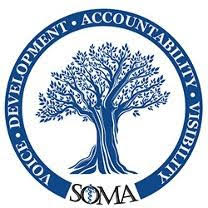› Forums › Spring 2020 Resolution Forum › Resolution: S-20-21: ACKNOWLEDGING RELIGIOUS AFFILIATION IN PATIENT CARE
- This topic has 0 replies, 1 voice, and was last updated 4 years ago by
Valerie Lile.
-
AuthorPosts
-
-
April 9, 2020 at 7:10 pm #3147
Valerie Lile
Keymaster1 WHEREAS, 91% of U.S. adults believe in God or a universal spirit and more than 81% found religion
2 to be important within their lives1; and3 WHEREAS, approximately 94% of hospitalized patients believe that spiritual health is equal in
4 significance to physical health and that 40% of patients use religion to cope with illness2; and5 WHEREAS, 33% of patients want their doctor to inquire about their religious beliefs and over 70% of
6 end-of-life patients would want their physician to know their beliefs2; and7 WHEREAS, engaging in discussion about patient spirituality/religious beliefs builds rapport with
8 patients by improving empathy, building a sense of trust, and understanding patient behaviors3; and9 WHEREAS, acknowledging spiritual or religious practices that drive patients to seek care is deemed
10 critical in achieving a more holistic medical practice3; and11 WHEREAS, healthcare providers have a duty to respect and uphold a patient’s expressed religious
12 beliefs, even if this amounts to death4; and13 WHEREAS, physicians are fully responsible for acknowledging that patients have a legal right to reject
14 treatment and if this right is not respected, can result in possible legal action; for example, Jehovah’s
15 Witness patients and their stance on receiving blood transfusions4; and16 WHEREAS, studies have shown that a physician’s comfort level and their feeling of a lack of training
17 both play significant roles in whether or not the physician asks about the religious practices/spirituality
18 of the patient5; and19 WHEREAS, introducing multidisciplinary experiential teaching and education modules into the
20 medical curriculum helps minimize barriers family physicians encounter when asking patients about
21 their religious preferences in the context of their health care5; and22 WHEREAS, there are numerous tools/mnemonics already in place that are aimed at helping both
23 physicians and medical students assess religious practices, such as HOPE (Sources of Hope, Organized
24 Religion, Personal Spirituality and Practices, Effects on Medical Care and End-of-Life Issues), FICA
25 (Faith and Belief, Importance, Community, Address in Care), and the Open Invite mnemonic1; now,
26 therefore, be it27 RESOLVED, that the Student Osteopathic Medical Association (SOMA) lobby the Commission on
28 Osteopathic College Accreditation (COCA) to encourage increased religious/spiritual preference
29 education within COM curricula; and, be it further,30 RESOLVED, that the SOMA petition that the National Board of Osteopathic Medical Examiners
31 (NBOME) encourage students to ask religious preference in the social history section of the subjective
32 portion of the patient encounter, when applicable, on the COMLEX-USA Level 2 PE to encourage
33 more patient-focused care; and, be it further,1 RESOLVED, that the SOMA encourages COCA to monitor this increased implementation of
2 religious/spiritual preference education and provide assistance for increasing its prevalence within
3 COM curricula as needed.References
- (2020, January 31). Religion. Retrieved February 23, 2020, from https://news.gallup.com/poll/1690/religion.aspx
- Saguil, A., & Phelps, K. (2012, September 15). The Spiritual Assessment. Retrieved February 23, 2020, from https://www.aafp.org/afp/2012/0915/p546.html#afp20120915p546-b4
- (2018, July 1). Influences of Religion and Spirituality in Medicine. Retrieved February 23, 2020, from https://journalofethics.ama-assn.org/article/influences-religion-and-spirituality-medicine/2018-07
- Chand, N. K., Subramanya, H. B., & Rao, G. V. (2014, September). Management of patients who refuse blood transfusion. Retrieved February 23, 2020, from https://www.ncbi.nlm.nih.gov/pmc/articles/PMC4260316/
- Lee-Poy, M., Stewart, M., Ryan, B. L., & Brown, J. B. (2016, September). Asking patients about their religious and spiritual beliefs: Cross-sectional study of family physicians. Retrieved February 23, 2020, from https://www.ncbi.nlm.nih.gov/pmc/articles/PMC5023366/
Submitted by:
Logan Shaver, OMS-II – Lincoln Memorial University — DeBusk College of Osteopathic Medicine – Harrogate Location
Staci Hunter, OMS-II – Lincoln Memorial University — DeBusk College of Osteopathic Medicine – Harrogate LocationAction Taken:
Date:
Effective Time Period: Ongoing
-
-
AuthorPosts
- The forum ‘Spring 2020 Resolution Forum’ is closed to new topics and replies.
